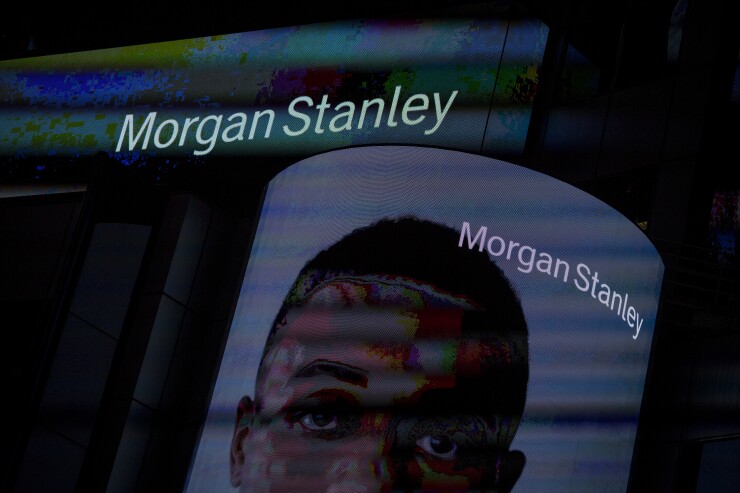Morgan Stanley scored a partial victory in its bid to block an exiting broker from contacting his clients, escalating the stakes for an industry pondering the makeup of a post-Broker Protocol world.
On Wednesday, a federal judge granted Morgan Stanley a temporary restraining order, blocking advisor John Fitzgerald from contacting clients. However, in a concession to Fitzgerald, the order does not prohibit him from returning their calls and emails.
The court battle could play out as a test case for Morgan Stanley, which quit the Broker Protocol
When Morgan Stanley announced its departure, the firm said it would "expect departing advisors to honor their non-solicitation obligation after we exit the protocol." The move carried weight because Morgan Stanley has more than 15,000 brokers and over $2 trillion in assets. UBS
The case will now likely move to FINRA arbitration, though Fitzgerald has an opportunity to ask the judge to lift the order.
"This is round one for Morgan Stanley, but I am interested to see what happens in round two when FINRA arbitrators will hear the case," says Tom Lewis, an attorney at law firm Stevens & Lee. He has represented advisors in arbitration.
The current spat started when Fitzgerald left the wirehouse on Friday to start an independent practice with Commonwealth Financial Network, an independent broker-dealer.

-
Brokers' top questions and concerns about the protocol's demise answered.
November 30 -
They're the latest mega group to join the boutique wealth manager.
November 30 -
With two wirehouses out, questions arise as to whether Merrill Lynch will follow suit.
November 27 -
While it was driven by the big firms’ desire to avoid litigation costs, there was a catalyst, without which I believe there would have been no pact.
November 16
Morgan Stanley filed its suit in federal court over the weekend. Fitzgerald signed a one-year non-solicitation agreement when he joined Morgan Stanley in 2005, and that the agreement specifies that the firm's resources and training are "material factors" in Fitzgerald's ability to serve and attract clients, the firm told District Judge Renee Marie Bumb in court filings.
"His express obligations notwithstanding, Fitzgerald was contacting Morgan Stanley’s customers by both telephone and email within an hour or so of his resignation," according to the firm’s lawsuit.
For his part, Fitzgerald rejected the firm's claims of irreparable harm, the standard necessary for a restraining order from the court. He based the counterargument in part on the firm's decade-long participation in the Broker Protocol.
"For years, Morgan Stanley has presumably allowed thousands of advisors like Fitzgerald to leave Morgan Stanley with the very same client information it now alleges he improperly took, and to solicit their clients despite any restrictive covenant prohibiting such solicitation. Now that Morgan Stanley changed its mind and no longer belongs to the Protocol, it claims that the very conduct it permitted for 11 years will cause it irreparable harm.," Fitzgerald’s filing says.
Fitzgerald, who is based in Vineland, New Jersey, has 11 years of industry experience, according to FINRA BrokerCheck recrods. He will have an opportunity in January to challenge the ruling, according to a court filing.
Neither Fitzgerald nor his attorney was available for immediate comment. While a spokeswoman for Commonwealth was not available for immediate comment, a spokeswoman for Morgan Stanley declined to comment on the case.





